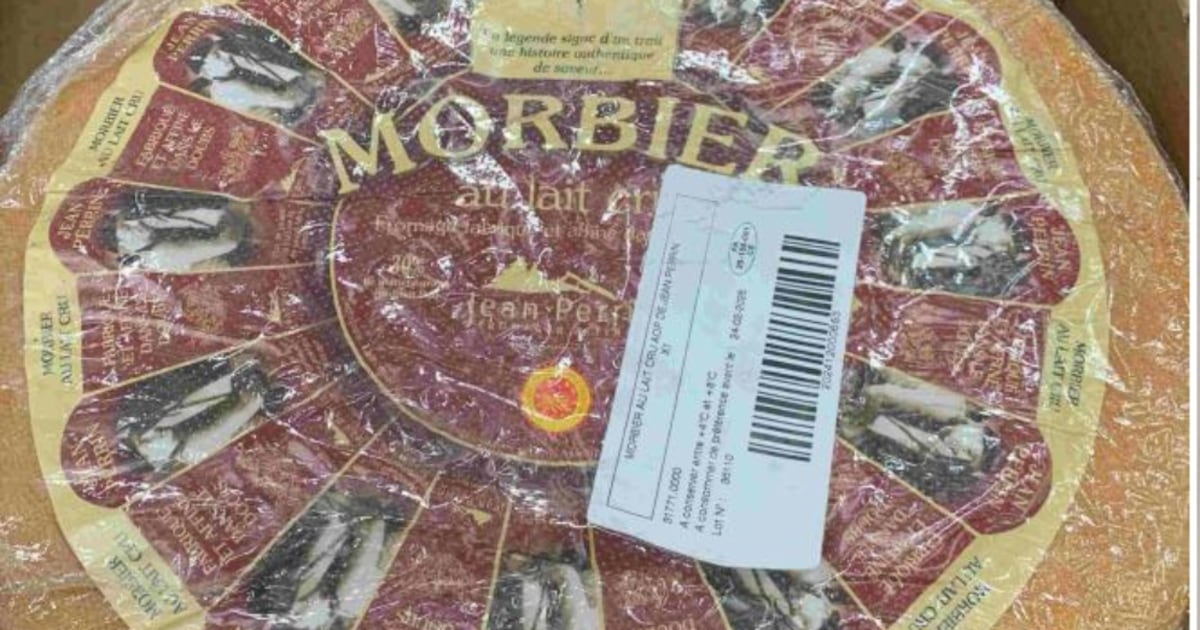Top Stories
Canada Halts Raw-Milk Cheese Imports Amid Cattle Disease Outbreak

The Canadian Food Inspection Agency (CFIA) has implemented a ban on the importation of raw-milk products from several European countries, including France, Italy, and Switzerland, due to an outbreak of lumpy skin disease affecting cattle herds. This decision, which takes effect for non-pasteurized cheeses produced on or after May 23, 2025, is expected to significantly reduce the availability of popular cheeses in Canadian stores, particularly during the holiday season.
Cheeses such as Brie de Meaux, Saint-Marcellin, Comté, Swiss Gruyère, and Parmigiano Reggiano will become increasingly difficult to find as existing inventories dwindle in the coming months. The ban reflects the CFIA’s proactive approach to safeguarding public health and the country’s livestock industry amidst concerns about the rapid spread of the viral disease.
Lumpy skin disease is characterized by fever and the development of numerous skin nodules on infected cattle. The disease is primarily transmitted by biting insects, including mosquitoes, horseflies, and tsetse flies. While the virus does not pose a risk to human health, it can have severe implications for cattle production and trade, leading to significant economic losses for affected regions.
As the holiday season approaches, consumers in Canada may notice a decrease in the variety of gourmet cheeses available. The impact of this ban could affect not only cheese lovers but also businesses that rely on the import of these specialty products.
The CFIA’s decision aligns with measures taken by various countries to control outbreaks of infectious diseases in livestock. By restricting the import of raw-milk cheeses from regions experiencing outbreaks, Canada aims to prevent the potential spread of lumpy skin disease within its own cattle populations.
In the meantime, Canadian retailers and consumers are encouraged to explore alternative cheese options, including pasteurized varieties that remain unaffected by the ban. As the situation develops, the CFIA will continue to monitor the disease and assess its impact on imports and domestic agriculture.
This ban underscores the importance of food safety regulations and their role in protecting both public health and the agricultural economy. As consumers adapt to these changes, the Canadian cheese market may see a shift in preferences and sourcing strategies in response to the evolving landscape of international food imports.
-

 Science3 months ago
Science3 months agoToyoake City Proposes Daily Two-Hour Smartphone Use Limit
-

 Top Stories3 months ago
Top Stories3 months agoPedestrian Fatally Injured in Esquimalt Collision on August 14
-

 Health3 months ago
Health3 months agoB.C. Review Reveals Urgent Need for Rare-Disease Drug Reforms
-

 Technology3 months ago
Technology3 months agoDark Adventure Game “Bye Sweet Carole” Set for October Release
-

 World3 months ago
World3 months agoJimmy Lai’s Defense Challenges Charges Under National Security Law
-

 Lifestyle3 months ago
Lifestyle3 months agoVictoria’s Pop-Up Shop Shines Light on B.C.’s Wolf Cull
-

 Technology3 months ago
Technology3 months agoKonami Revives Iconic Metal Gear Solid Delta Ahead of Release
-

 Technology3 months ago
Technology3 months agoApple Expands Self-Service Repair Program to Canada
-

 Technology3 months ago
Technology3 months agoSnapmaker U1 Color 3D Printer Redefines Speed and Sustainability
-

 Technology3 months ago
Technology3 months agoAION Folding Knife: Redefining EDC Design with Premium Materials
-

 Technology3 months ago
Technology3 months agoSolve Today’s Wordle Challenge: Hints and Answer for August 19
-

 Business3 months ago
Business3 months agoGordon Murray Automotive Unveils S1 LM and Le Mans GTR at Monterey









